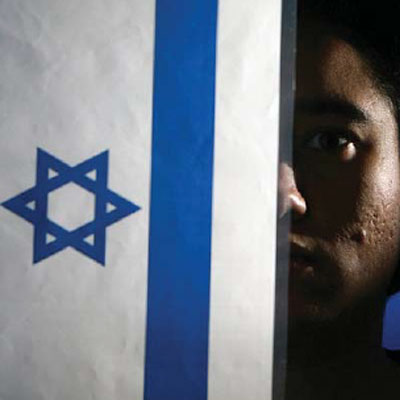From the Middle Ages to modernity, the status of the Holy Land has both united and divided the three major monotheistic faiths. Indeed, as much ink as blood has been spilled between Christian, Muslim, and Jew over the status of Israel, its borders and the occupation of the West Bank. What is too often overlooked, however, is how the conflict affects the life, ministry, and mission of Christians to Muslims both in and outside the Holy Land.
The following are the views of evangelical scholars, missionaries and ministers who live and work in the Middle East or with Muslims outside the Middle East: Munir, an Evangelical Palestinian academic; Manraj, a Pakistani Church Leader; Dawud, an Indian Islamic Scholar; Fouad, an Egyptian missionary working with Muslims in Spain; and Robert, an American missionary in North Africa.[1]
Major impact
Though they differ in context and perspective, nearly all these leaders affirm that the current conflict has a major impact on their ministry:
Pakistan
Manraj notes that Jews and Christians (‘yahud-o-nasara’) are paired together and thus considered enemies of Islam. Pakistani Christians grow fearful whenever the Israeli-Palestinian conflict intensifies. Consequently, church leaders and prominent Christians make statements in favour of Palestinians and against Israel to appease the wrath of Muslims who denounce Jews and Christians.
India
According to Dawud, Muslims have an inherent suspicion of Christians and view them as being aligned with the United States — and its policies and ‘interference’ in the Middle East.
Palestine
Munir suggests that the unconditional U.S. bias and support of Israel causes many Arabs to resent anything related to the West. Muslims associate the West with Christianity, and this causes them to resent Christianity. Bias against Christianity is particularly directed against Evangelical Palestinians. They are viewed with suspicion and often accused of being Zionist, because people associate them with Evangelicals in the West. It is not surprising then, that for Evangelical Palestinians, such as Munir, the conflict is their daily reality which they cannot escape.
Effect on ministry, mission, and training
The perceived bias of evangelicals for Israel affects ministry, mission, and theological training in the occupied territories. For Munir, the conflict is a major part of theological discussions. As a teacher in a seminary, when preparing students for ministry, he has to prepare them to live in a context of conflict. Accordingly, teaching on forgiveness, non-violence, reconciliation, and peace-making are central for training of evangelical Palestinian pastors and theologians.
Further, in reaching out to Palestinians with the Gospel, Munir emphasizes the need to address issues such as Christian Zionism and the validity and relevance of the Old Testament for Christian life today, given that the Old Testament is often used by Zionists and some American Evangelicals to justify the confiscation of land and water of Palestinians, which destroys their livelihood.
Manraj explains that even simple matters of public worship and prayer in Pakistan are often affected by the conflict. Pakistani Christians have to use extreme caution in prayer for the region lest they be accused of disloyalty – or, worse, blasphemy which carries the death sentence. Simply reading scripture in public worship or singing Psalms can be dangerous if the name of Israel is even mentioned.
Immigrant concerns
Fouad notes that many Christian immigrants from Middle Eastern countries leave their homelands because their identity as Christians leaves them subject to increasing discrimination as a result of the conflict. Christians are systematically denied official, educational, and governmental positions. Alienated and subject to discrimination, they no longer feel at home in their native lands and seek to emigrate to Western nations.
By contrast, Robert and Fouad note that for many North African Muslims the conflict is secondary to the more immediate problems that impact their lives and to broader issues of current concern in North Africa. Furthermore, Fouad notes that, in his own ministry, given his Egyptian ethnic background and his fluency in Arabic, most Muslims he works with do not classify him as someone on the opposite side. Nonetheless, because of the political, social, and economic instability at home, many of these immigrants do not think of going back.
Along with other migrants, the chief concern of displaced Muslims from North Africa is the economic crisis in Europe, which is making their life impossible, according to Fouad. They feel trapped between two worlds and many are thus open to receive some consolation from the message of the Gospel.
On the other hand, many Muslim extremist groups, in their attempt to make followers, are seeking to create enemies to consolidate Islamic unity:
- The seed of mistrust is there, weakened or forgotten when there are good relationships among neighbours from different backgrounds.
- The Israeli-Palestinian conflict allows them to shake this ground by bringing to the surface again Muslims’ worst fears.
- This has been increasingly true in Europe in light of the Arab uprisings.[2] Many Muslims see radical Islam as the main winner.
- In light of this many are taking courage and promoting Islam boldly, and more confidently, as a valid alternative to the Western life style. This affects the ministry negatively.
Religious identity of the conflict
This coincides with developments among Palestinians in the occupied territories. Munir observes that over the last 15 years, the conflict has taken on a religious identity with the rise of Hamas, Hezbollah, and more recently the Muslim Brotherhood, as well as Iran’s raised regional profile. Accordingly, the state of Palestine is now part of the religious speech of these parties, and the liberation of Palestine is viewed as a holy war or jihad.
Such religious rhetoric surrounding conflicts in the Middle East is not limited to Muslims. Munir points to the fact that Arab Muslims have not forgotten the Iraq war and the pictures on Al-Jazeera TV of dead children and women — nor former U.S. President George Bush’s infamous use of the word “crusade” in his description of the war on terror. All of this fuels pre-existing ideologies of restoring Islamic dominance and sharia law in the Arab and Muslim world, such as Wahhabism and the Muslim Brotherhood.
In Pakistan, Manraj notes that when the issue of persecution of Christians is raised, Muslims respond by pointing to Palestinian Muslims who are persecuted by Israelis who are in turn protected and supported by Western Christians, especially in Evangelical churches.
Signs of hope?
Nonetheless, some see the seeds of hope in the political movements of the Arab uprisings. Munir notes that for Palestinian Christians, it was refreshing to see how the power of non-violence achieved freedom in Egypt and elsewhere.
Dawud hopes that these movements will usher in a more moderate and inclusive Islamic power. With Islamists occupying centre-stage in democratic processes, he notes that they range from extremist to modern post-Islamist, with an increasing number apparently subscribing to centrism. His hope is that this may lead to a new wave of ‘Islamic democracies’ with freedom for people of other faiths – something like the great 9th century Caliphate and the Mughals who promoted questioning and honest dialogue even in their courts.
Conclusions and advice
Each of these Evangelical Christians living and working with Muslims emphasise the paramount need to understand the perception of Muslims in the Middle East and beyond with regard to the Israeli-Palestinian conflict.
Robert notes that Evangelicals should take off their interpretive glasses, be more informed about the situation in the Middle East, and ask what is happening to Christians around the world as the result of the conflict.
Munir encourages Evangelicals to avoid stereotyping people or making quick accusations of anti-Semitism against those who question Israel’s treatment of Palestinians in the Occupied Territories. Instead, Western Evangelicals ought to engage and work with their Evangelical brothers and sisters from Muslim countries – and listen to them. They should encourage dialogue and peace between Palestinians and Israelis. He argues that peace is possible and that our call as Christians is to be peacemakers and bridge-builders. Therefore Evangelicals should encourage Christians of all stripes to come and join in the efforts of Palestinian Christians to promote peace and reconciliation and not simply focus on narrow interpretations of Old Testament prophecy.
Manraj suggests a focus on development and justice rather than on a dispensationalism that emphasises the end times and the restoration of Israel. He encourages Evangelicals to develop active and close relations with the weak and especially persecuted churches with special attention paid to developing leadership and communities on the foundations of strong faith.
Dawud cautions Evangelicals not to rush into Muslim countries in times of conflict, especially where these conflicts directly or indirectly implicate Western nations perceived largely to be Christian. Indeed, they should not consider reaching Muslims in Muslim nations if they are not fully committed to reciprocate hospitality with hospitality, empathising and listening to their concerns.
Fouad encourages Evangelicals outside Muslim majority countries to get engaged with Muslims who are around them, pointing out that it is not by accident that God brought them near to them. He emphasises the importance of showing interest and care for them, adding that it is much easier than many think to start a conversation with them.[3]
Munir reminds his fellow Evangelicals that the Kingdom of God has come. Evangelicals must reclaim the prophetic role in bringing peace, justice and reconciliation in Palestine and Israel. Reconciliation recognises God’s image in one another. Racial ethnicity alone does not guarantee the benefits of the Abrahamic Covenant. The Church in the land of the Holy One has borne witness to Christ since the days of Pentecost. It must be empowered to continue to be salt and light in the region, if there is to be hope in the midst of conflict.
Endnotes
- The names have been changed given the sensitive nature of their identity and ministry.
- See David Taylor’s article entitled ‘Where Next for the Arab Spring’ in the November 2012 issue of Lausanne Global Analysis.
- See Gina Bellofatto’s article entitled ‘People and Their Religions on the Move’ in the November 2012 issue of Lausanne Global Analysis.

